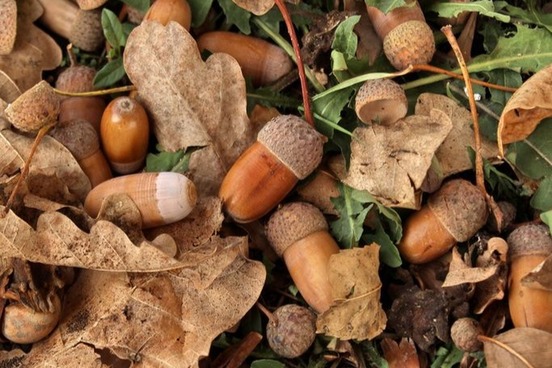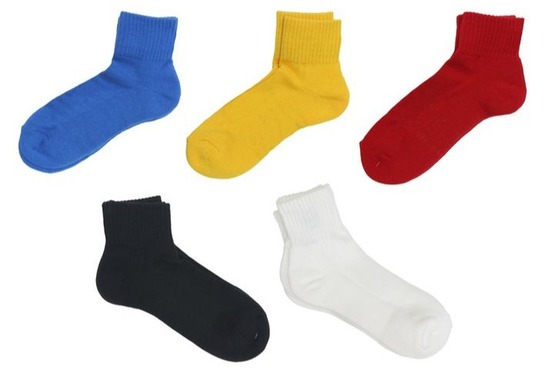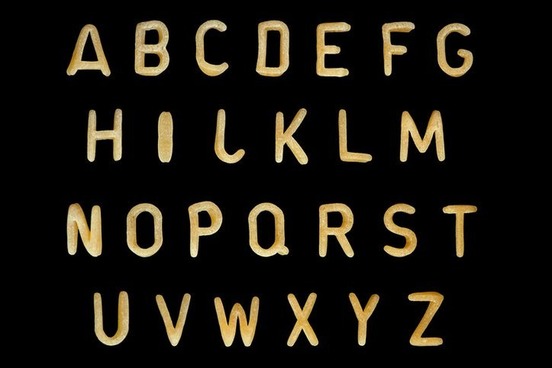
Embox
verb : to enclose in or as if in a box
That's right: all these years you've been saying "put it in a box" when you could have been using the simpler, more elegant "embox it." We have no explanation for why this 16th century term isn't in popular use. We will not suggest that the far greater popularity of the slightly younger contrasting term, unbox ("to remove from a box"), says anything about a consumer society willfully and woefully ignorant of the efforts of those who toil unseen to make our consumption seamless. (And no, we are not above apophasis.)

Rivulose
adjective : marked with irregular, narrow, sinuous, or crooked lines
There's no reason the scientists should have exclusive use of such a good word as rivulose. While they may use this word primarily to describe the irregular, sinuous, and crooked lines on the surfaces of bugs and fishes and mushrooms (for purposes entomological, ichthyological, and mycological), you can apply it as you wish. It can, for example, do the job of describing the wrinkles on your typical lexicographer's shirt. The word is Latin in origin, tracing back to rivulus, meaning "rivulet," and the English suffix -ose, meaning "possessing the qualities of." Something that is rivulose is marked with lines reminiscent of those made by a rivulet—that is, a small stream—as viewed from far above.

Presbyopia
noun : a visual condition which becomes apparent especially in middle age and in which loss of elasticity of the lens of the eye causes defective accommodation and inability to focus sharply for near vision
If you're not there yet, chances are it's only a matter of time. When presbyopia sets in you probably need two things: reading glasses, and to face the fact that you're middle aged. Presbyopia is a rare word, especially considering how common the condition is. The word traces back to the Greek presbys, meaning "old man." If it reminds you of the word Presbyterian, that's no coincidence. That word traces back to Greek presbyteros, meaning "priest, elder," itself a form of presbys.

Mast
noun : nuts (such as acorns) accumulated on the forest floor and often serving as food for animals
The mast on the forest floor is unrelated to the masts salvage divers hope to find on the ocean floor, though both words date to the days of Old English. The forest ecology kind of mast comes from the Old English word mæst, which shares an ancestor with the Old High German word mast, meaning "food" or "mast," and is probably related to the Old English word mete, source of our word meat, which originally meant simply "food."

Callipygian
adjective : having shapely buttocks
While just how common callipygian folk are is in the eye of the beholder, your humble dictionary ventures here to suggest that callipygian folk are common enough to justify way more use of this word than we currently see. The less common variant callipygous is also a reasonable option. English got both from the Greeks of long ago, who clearly knew how to appreciate shapely buttocks. The Greek kallipygos has its origins in kallos, meaning "beauty," and pygē, meaning "buttocks."

Geminate
adjective : arranged in pairs : duplicate
Lots of things are geminate: chromosomes, headlights, the six eyes of a brown recluse spider. So many geminate things never get described as such but could be: a drawer could be full of geminate socks, for example. The word geminate is also used to describe a sequence of identical speech sounds, such as when a careful speaker pronounces bookcase or newsstand as though each part of the compound were behaving independently. The word is from Latin geminatus, from geminus, meaning "twin," as any astute Gemini will have already guessed.
Geminate is a verb too, meaning "to make geminate" or "to be or become geminate." The verb is mostly used by linguists to talk about sounds that are doubled, but your dictionary is here to tell you that when your laundry tasks have you matching socks you can consider yourself to be geminating those socks if you like.

Majuscule
noun : a large letter (such as a capital)
We all learned in elementary school that sentences start with a majuscule and end in a punctuation mark. What was that? You say your elementary education did not include the word majuscule? Well, we're sorry for that. And if you're an elementary school teacher perhaps you can do something to prevent this sad situation going forward.
Majuscule comes from the Latin majusculus, meaning "rather large," and has referred to large letters like capitals since the early 18th century. It's contrasted with minuscule. That's right: that much-loved word for describing all things very small began as a noun referring to a lowercase letter but went on to have a life wholly independent of written language while majuscule languished in obscurity. The injustice is staggering. We will also note that the adjectival form majuscular is really begging for metaphorical extension. C'mon, people.

Snatchy
adjective : done in or by snatches broadly : marked by breaks in continuity : interrupted, spasmodic
While speakers of British and Australian English turn to snatchy more often than speakers of American English do, no one is using it to anywhere near its full potential. It's currently most often applied in contexts describing vehicular performance that is less than smooth, which leaves contexts involving interrupted conversation, sleep, reading, gardening, drawing, swimming, dancing, and nose-blowing all available.

Nidification
noun : the act, process, or technique of building a nest
Few humans have first-hand experience with nidification, but that does not fully explain the rarity of this word. Observers of the outside world, and birders specifically, frequently make note of nidification without bothering to apply the term. This does not have to be.
Nidification is Latin in origin, of course. Nidificare means "to build a nest." It comes from nidus, meaning "nest." Two useful, related, and also underused words are nidifugous, meaning "leaving the nest soon after hatching," and nidicolous, meaning "reared for a time in a nest." Nidicolous is also used to mean "living in a nest," and especially "sharing the nest of another kind of animal."
We will note that there is nothing to stop English speakers from extending these words into the realm of metaphor. We would never try to influence the language's development, but neither will we turn a blind eye to phrases like "nidicolous adult children" and "a builder whose contractors are well-versed in all kinds of nidification," should we happen to encounter them. Just saying.





